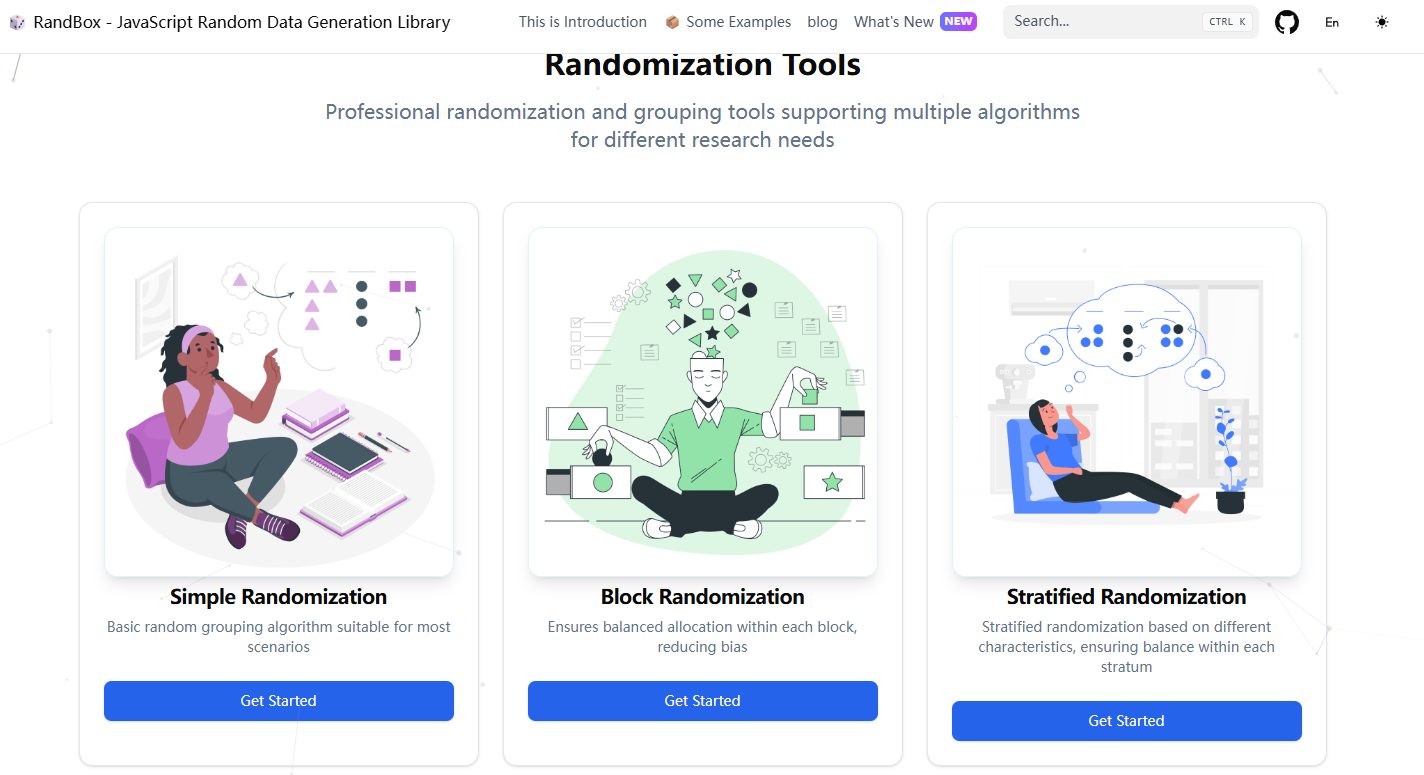Building RandBox from Scratch (2/5): Technical Architecture and Core Implementation

Design Principles
- Progressive complexity: Simple → advanced options.
- Sensible defaults: Useable out of the box.
- Consistency: One API style across modules.
Core API
export function integer(this: RandBox): number
export function integer(this: RandBox, max: number): number
export function integer(this: RandBox, min: number, max: number): number
export function integer(this: RandBox, options: IntegerOptions): numberInternally, options are normalized, ranges validated, and exclusions applied to produce robust outputs.
Modules
- basics: integers/floats/strings/booleans
- person: names, gender, birthday, documents (SSN/CPF/CF/Aadhar)
- location: coordinates, lat/long, address, phone, zip/postal
- finance: credit card (Luhn), expiry, currencies, currency pairs
- text: syllable/word/sentence/paragraph, emoji
- time: date/time/timestamp/timezone/ampm
- web: domain/url/email/ip/mac/tld/social
Helpers
- pickone/pickset/shuffle
- capitalize/pad
- set/mixin for data and behavior extensibility
Testing & Validation
- Range tests, locale constraints, format checks (e.g., Luhn for cc)
- Deterministic seeds for reproducible test cases
Conclusion
The architecture balances flexibility and consistency, yielding a library that is easy to adopt while remaining powerful for complex scenarios.
Last updated on: